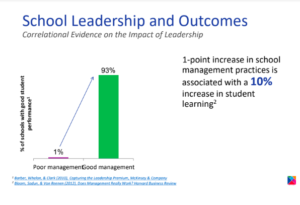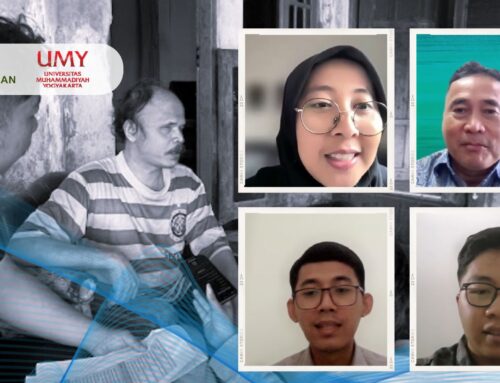 Previous studies have found that school leadership is a crucial factor in determining the quality of schools. On Thursday, 11 October 2018, The SMERU Research Institute hosted a FKP event discussing school leadership in Indonesia with presentations by Hendarman (Head of Analysis and Policy Synchronization, Ministry of Education and Culture) and Sameer Sampat (Global School Leader).
Previous studies have found that school leadership is a crucial factor in determining the quality of schools. On Thursday, 11 October 2018, The SMERU Research Institute hosted a FKP event discussing school leadership in Indonesia with presentations by Hendarman (Head of Analysis and Policy Synchronization, Ministry of Education and Culture) and Sameer Sampat (Global School Leader).
According to Hendarman, there are three main roles of school principals in Indonesia: managerial, entrepreneurship development, and teacher and staff supervision. Nowadays, due to globalization, industrial revolution 4.0, and the increasing importance of the creative era, students face new global challenges that are different from the past. Therefore, teachers—especially principals—need to have basic 21st century skills to become a role model for students. However, in reality, principals are often required to take on responsibilities beyond their capabilities and are often burdened with administrative tasks that are time consuming. These factors hinder principals from creating innovations and from living up to their potentials.
Source: Sameer Sampat’s slide for FKP
Next, Sameer Sampat explained the importance of school leadership in the quality of education. He believes that there is currently a learning crisis, where more students in the developing world are enrolled in schools, yet they are not learning as much as they should. For example, less than half of grade 5 students in India can read grade 2 texts. To illustrate the importance of education, he explained how in the USA the gap in wage level, life expectancy, and incarceration rate between the black population and the general population has become smaller due to education. One of the biggest internal factors that determine the quality of schools is their principal. Previous research found that a 1-point increase in school management practices is associated with a 10% increase in student learning, yet there tends to be an underinvestment in school leadership, including in Indonesia. This can be seen by the fact that only 2% of school leaders in Indonesia have completed the Principal Preparation Program. To improve this condition, Global School Leaders work together with the government of Indonesia to provide trainings for school principals. In India, this intervention has led to an increase in student and teacher performance after 1 year of training.
For the complete presentation and Q&A session, please refer to the video and materials provided.





